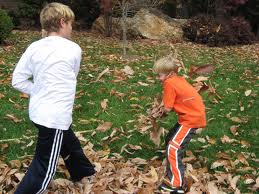Monitoring and Self-Regulating Action
Sarah:
I love getting into intense conversations with other people where it’s not just small talk. I love sharing impressions and opinions between people about things that really matter. I think that’s how people get to know each other and learn from one another. Usually it works out well, but sometimes I get too intense and turn other people off when I’m trying to find out what they think and why they think that way. Usually I don’t notice it at the time; I just see that they drop out of the conversation or walk away. My husband says I just don’t know how to keep my eyes open and notice when others are starting to act uptight or bored with what’s being discussed. He says that most of the time I talk too much  or ask too many questions without noticing how I am coming across and how others are reacting to what I’m saying. He says that most of the time I’m too much mouth and not enough eyes and ears when I’m in a conversation.
or ask too many questions without noticing how I am coming across and how others are reacting to what I’m saying. He says that most of the time I’m too much mouth and not enough eyes and ears when I’m in a conversation.
Advice:
Recognizing nonverbal communication is one of the executive functions of the brain, and which is the core problem for the ADHD brain. People with ADHD have problems interpreting the meaning of nonverbal communication. For example, you may be talking too much and do not notice that the person you are talking to is checking her watch or yawning. Because you do not notice this, you continue talking. When someone is talking to you, you should try and notice not only their verbal message but also their nonverbal message. This can take some practice.
Some other persons with ADHD syndrome have different problems with self-monitoring, and controlling their actions in social situations. They tend to be excessively focused on how others are reacting and are excessively self-conscious. They tend to be too constricted, too shy, too inhibited in their social actions. Though these more cautious individuals with ADHD syndrome may long for more reciprocity with others and may have many interesting ideas and feelings to share, they often get so caught up with intently monitoring that they are unable to engage themselves in social interactions.
To actively work on these issues, and to improve your social communication skills, I would work with your personal issues, alongside the following areas:
- Sending accurate messages
- Controlling and discussing emotions
- Being assertive when you need to
- Listening actively to what others are saying

